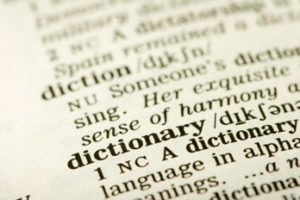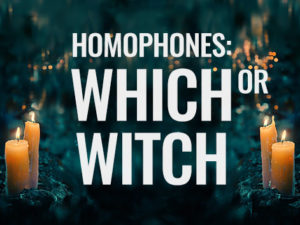
Homophones: Affect vs. Effect
Homophones can be confusing. Luckily, there’s an easy way to remember affect vs. effect. I see it all the time: affect and effect mixed up as if they were completely interchangeable. But they’re not. These two homophones may sound exactly alike, but they don’t even belong to the same parts of speech! If you’ve ever…Read More

Homophones: Accept vs. Except
The English language is fraught with sound-alike words that look nothing alike on the page (or screen). These homophones have given many writers headaches as they agonize over word choice while composing poems, articles, essays, and stories. Accept vs. except is one such pair of words. Though not among the most commonly confused homophones, these…Read More

Homophones: They’re, There, and Their
Homophones are words that sound the same when pronounced out loud but have different meanings. Homophones such as they’re, there, and there confuse kids, slip past spell check, and pop up all over the place as typos and misspellings. To make things worse, many homophones have different spellings, which means spell check ignores them, since alternative spellings…Read More

Homophones, Homonyms, and Homographs
They perplex us, confuse us, and make our heads spin. If you thought learning how to correctly spell words that sound alike was difficult, wait till you try to learn the terms for describing those words. Homophones Homophones are words that are pronounced alike but have different meanings. Some examples are accept and except, affect…Read More

What is a Homophone?
Homophones are those annoying words that sound exactly alike but have different meanings and are often spelled differently. They give English teachers nightmares, cause headaches for students, and drive editors crazy. We writers need to be diligent about homophones because spell-check won’t catch them, and many readers cite misspelled homophones as pet peeves. And we…Read More

Homophones for Music Lovers: Turn up the Bass and Play a Chord
Homophones are words that sound alike but have different meanings. Many homophones also have different spellings, and all too often, people mix them up. The result is an onslaught of misspellings throughout the written universe. Although these mistakes are understandable, they are problematic since they are contagious. If someone sees a homophone used incorrectly or…Read More

Homophones: Two, Too, and To
One of our readers wrote in to ask about the homophones too and to: “I was trying to find something on how and when to use ‘to and too’ I am having trouble in that area. I have trouble with that a lot and I tend to mess up with that. Can you help and…Read More

Homophones: Which Witch?
A reader left the following comment inquiring about the spelling of two sets of homophones: “I have trouble with witch/which (and even so, I am not sure I have those right) and weather/wheather [sic]. any good ideas on how to keep them straight???” I’ve already written a post addressing the difference between weather and whether….Read More

Homophones: Weather and Whether
Homophones are words that sound alike but have different meanings. They confuse readers and writers, and are often the source of frustrating spelling mistakes. There are lots of tricks available to help you differentiate between homophones. In some cases, you can use mnemonics to remember which spelling to use. In other cases, you just have…Read More

Homophones: Compliment vs. Complement
Homophones are words that sound alike but have different meanings. Sometimes, they’re also spelled differently: compliment vs. complement. Since homophones sound the same, they are often misspelled. Sometimes they’re misspelled because the writer doesn’t know there are two different spellings. In other cases, misspelled homophones are the result of typing too fast or failing to…Read More



